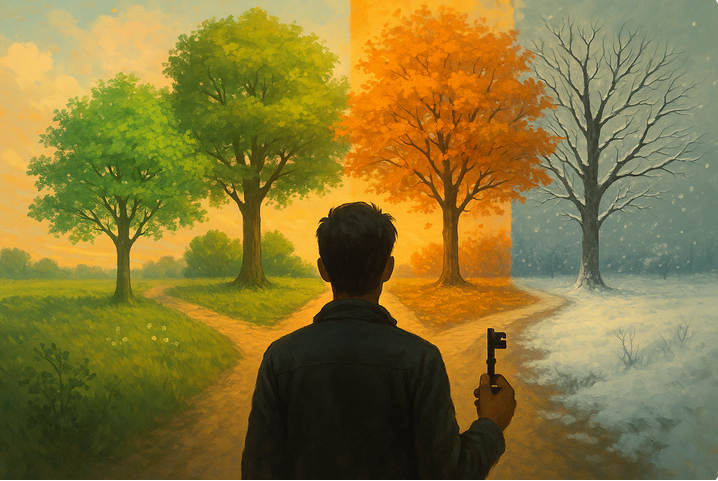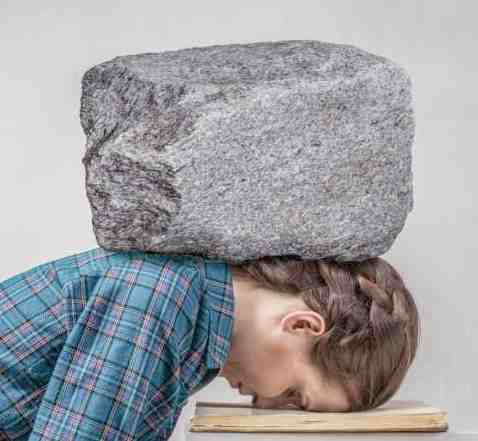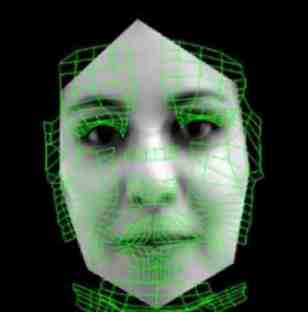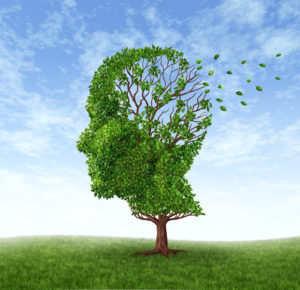Can You Stop Thinking?
Discover The Joy Of A Quiet Mind
Cherish the times when you are not thinking about anything
Can You Stop Thinking?
According to Zen Buddhist priest Shunmyo Masuno the art of not thinking about anything is not easy to achieve. Even practising monks find it difficult.
But it is possible.
Imagine being able to stop thinking at will, on demand, at any time and in any place.
Imagine being able to create a space in your head where there are no thoughts and no emotions... just space and awareness of the sounds and smells and visual images around you...awareness of the sensation of your breath entering and leaving your body.
How To Stop Thinking?
Shunmyo Masuno is of course correct in saying that it is difficult,
but with the mastery and consistent practise of a few simple techniques
it is very possible. Most people can learn how to do this.
What is it like to be able to stop thinking?
I have learned how to do this and in this article I am going to share with you how you can stop thinking. So, what is it like to be able to stop thinking?
The best way I can describe it is to say that it's like having your own personal safe room in your head where you can take refuge from your thoughts. When I am in my safe room in my head it is as though I am in a place where there are no thoughts and no emotional reactions.
Well strictly speaking I am aware of a limited amount of distant "white noise" coming from thoughts and emotions but this is very peripheral to the core of where I am. So I guess to be completely accurate this means that I stop 80% of all thought and emotional reactions more or less on demand.
So what is the secret sauce?
Zen teaching offers us a 2 minds model:
1] The thinking mind - or monkey mind as it is often referred to - which runs on autopilot and is constantly spewing out a stream of thoughts some connected and many seemingly unconnected. It is impossible to turn this mind off. It just is what it is and it does what it does.
2] The witnessing mind - or observing mind - which watches and observes the mental noise of the thinking mind and the ebb and flow of our emotional responses to the events that take places in our lives.
Mark Manson explains this very well in an article called The Two Minds and he outlines very lucidly how we make the mistake of identifying with our thinking mind by saying "I am angry" rather than saying "I feel anger".
# The first big takeaway in learning how to stop thinking is to understand that you are not your thoughts.
# The second big takeaway is that the fastest way to unfuse your thinking mind and your observing mind is to accept your thoughts.
In real time you can do this on demand and it will take you about 5 - 10 mins. Here is the process for:
The Practice Of Deep Acceptance
This is very simple, very powerful and very effective. If you follow this process exactly as described - don't think it just do it - and you will very quickly enter your own personal safe room.
If you are having a really tough time I have outlined two further techniques that are equally powerful:
Intense Present Moment Awareness Using NLP
Intense Present Moment Awareness Using A Simple Mantra
# The third big takeaway is that the best longer term approach to gaining control of your thoughts is the practice of mindfulness.
A very good place to start is with these:
6 Key Practices From Eckhart Tolle
Why Stop Thinking?
Who would you be without that thought?
For me, knowing how to stop thinking is more important than learning how to think.
I have found that when I still my mind through mindfulness practice, it becomes a whole lot easier to see my thoughts and emotional states as they arise and subside.
I have also found that it is surprisingly liberating to spot the boringly repetitive pattern of these thoughts and emotional states.
It's quite shocking to observe just how much I run on emotional and mental autopilot.
It's as if there is a very personal Windows 10 operating system running everything.
The next big realization occurred when I began to observe myself getting caught up in these thoughts and states, and becoming totally identified with them.
This was quickly followed by the further realization of how much my identification with these thoughts and states was shaping and affecting my responses to the events in my life and ultimately the outcomes that I experienced as a result of those responses.
A reality check!
However, I do not want to create the impression that I no longer suffer from my thinking mind. I do.
But the difference now is that I know exactly what to do, and how to do it, to side-step my thinking mind and just stop thinking for a while.
I also do not want to create the wrong impression that mastering the practices of acceptance and mindfulness will permanently remove all your negative emotional and mental patterns - it won't!
But what these practices will give you is the toolkit to manage these things and considerably reduce their impact on your life.
To put this into perspective, on a scale of 1 as really bad and 10 as really good, before learning these practices my experience with my thinking mind was an average of about 2.5 out of 10.
Now it is an average of between 7 and 8 [let's call it 7.5] out of 10.
Over the 20 years I have been doing this, that adds up to a whole lot of benefit. For much of my life I have lived a very stressful life. I am now in my sixties and in good health in all areas of my life. I honestly feel that without these practices I would most likely have died years ago.
A list of benefits from stopping thinking
About 10 years ago I wrote this list of the benefits of being able to stop thinking, and I reviewed it today and with slight editing and no order of priority it still stands:
- To witness or observe (without narrative or analysis) the recurring or autonomic nature of your thoughts and feelings
- To watch how your inner map of reality applies filters
- To see how you become immersed in and identified with your thoughts and feelings
- To learn how to stop thinking – to turn your thoughts off - at will
- Seeing through the noise
- Peace
- Enhanced intuition
- Refuge from the insanity and frantic nature of daily life
- Clarity of perception
- Insight into the nature of things
- A deeper sense of what is and isn’t important
- Being able to let go and knowing you will be OK
Here are 3 personal takeaways on learning how to stop thinking
- It provides me with a sanctuary and refuge from the tyranny of my thinking mind.
- This break from my thinking mind give me an opportunity to recharge my mental, emotional and spiritual batteries
- It really does allow new ideas and fresh insights to emerge. I find that the space that arises between the thoughts in my thinking mind is a very fertile and creative space
Ideas or sparks actually emerge from the empty spaces within your mind - from the gaps between your thoughts. To
increase the chances of teasing out those ideas from between the gaps,
cherish the time when you're not thinking about anything. [Shunmyo Masuno]
Resources
Here is the whole end-to-end 4 stage process to dealing with your thoughts:
- Awareness of your thoughts
- Understanding your thoughts
- Accepting your
thoughts
- Living with our thoughts
Highly Recommended:
Zen The Art Of Simple Living by Shunmyo Masuno
Further Reading:
- Mark Manson - Two Minds Model
- When You Stop Doing, Life Speaks
- Freeing Yourself From Your Mind - 6 Key Practices From Eckhart Tolle
- Eckhart Tolle - Present Moment Awareness
- Thich Nhat Hanh - Living In The Present Moment
- Brainwave Entrainment - Experience The Benefits Of A Balanced Brain
- Conscious Thinking - Its Limitations & Life Beyond Your Thinking Mind
- Duality - Exposes The Limitations Of Time, Foreground And Background
Next Article: Are You Waiting For Change?
Return from "Stop Thinking" to:
Inner Mastery For Outer Impact or Walking The Talk
LATEST ARTICLES
Master The Season You Are In - The Key to Fulfilling Your Purpose
 To fulfil your purpose, you must first master the season you are in. One of the biggest mistakes you can make in life is focusing all your energy on the next season instead of learning to master the s…
To fulfil your purpose, you must first master the season you are in. One of the biggest mistakes you can make in life is focusing all your energy on the next season instead of learning to master the s…The Inner Weight of Shame - Sustained By Attentional Fixation
 A Mind That Is Continuously Engaged In Self-Surveillance. Shame is one of the heaviest inner burdens a human being can carry. It does not announce itself loudly or demand attention through drama. Inst…
A Mind That Is Continuously Engaged In Self-Surveillance. Shame is one of the heaviest inner burdens a human being can carry. It does not announce itself loudly or demand attention through drama. Inst…Does Prayer Work? The Psychology of Prayer, Meditation and Outcomes
 Reality Is A Complex System Of Countless Interactions - Including Yours. So does prayer work? The problem is that the question itself is usually framed in a way that guarantees confusion. We tend to a…
Reality Is A Complex System Of Countless Interactions - Including Yours. So does prayer work? The problem is that the question itself is usually framed in a way that guarantees confusion. We tend to a…Living in Survival Mode Without Surrendering Mental Authority
Living in Survival Mode Without Surrendering Mental Authority
 Clear Thinking When You’re Just Trying to Stay Afloat. Many people today are overwhelmed because they are living in survival mode - not temporarily, but as a persistent condition of life. For many, th…
Clear Thinking When You’re Just Trying to Stay Afloat. Many people today are overwhelmed because they are living in survival mode - not temporarily, but as a persistent condition of life. For many, th…Manifestation Without Magic: A Practical Model
 Manifestation without magic is not a softer or more intellectual version of popular manifestation culture. It is a different model altogether. Popular manifestation teachings tend to frame reality as…
Manifestation without magic is not a softer or more intellectual version of popular manifestation culture. It is a different model altogether. Popular manifestation teachings tend to frame reality as…Staying Committed When You Can't See Progress - The Psychology of Grit
 Uncertainty Is Not The Absence Of Progress, Only The Absence Of Reassurance. One of the most destabilising experiences in modern life is not failure, but uncertainty and staying committed when you can…
Uncertainty Is Not The Absence Of Progress, Only The Absence Of Reassurance. One of the most destabilising experiences in modern life is not failure, but uncertainty and staying committed when you can…The Battle For Your Mind - How To Win Inner Freedom In A Digital Age Of Distraction
 From External Events to Inner Events. We often think of “events” as things that happen out there: the traffic jam, the rude comment, the delayed email reply. But what truly shapes our experience is wh…
From External Events to Inner Events. We often think of “events” as things that happen out there: the traffic jam, the rude comment, the delayed email reply. But what truly shapes our experience is wh…How to See Your Thoughts Without Becoming the Story
 A Practical Guide to Thought-Awareness. You can spend your life inside the stories of your mind without ever learning how to see your thoughts clearly and objectively. Most of the stuff we tell oursel…
A Practical Guide to Thought-Awareness. You can spend your life inside the stories of your mind without ever learning how to see your thoughts clearly and objectively. Most of the stuff we tell oursel…The Collison Decision Matrix - A Simple Framework for Better Choices
 The Collison Decision Matrix Is A Practical Everyday Thinking Tool. Most of us spend a surprising amount of time worrying about decisions. From small ones such as what to wear, what to eat, what to te…
The Collison Decision Matrix Is A Practical Everyday Thinking Tool. Most of us spend a surprising amount of time worrying about decisions. From small ones such as what to wear, what to eat, what to te…The Power Of Asking The Right Question
 The Power Of Asking The Right Question Lies In The Quest For Insight. To experience the power of asking the right question you must develop the practice of asking questions. The best way to improve th…
The Power Of Asking The Right Question Lies In The Quest For Insight. To experience the power of asking the right question you must develop the practice of asking questions. The best way to improve th…Site Pathways
 Here is a site pathway to help new readers of Zen-Tools navigate the material on this site. Each pathway is based around one of the many key themes covered on this site and contain a 150 word introduc…
Here is a site pathway to help new readers of Zen-Tools navigate the material on this site. Each pathway is based around one of the many key themes covered on this site and contain a 150 word introduc…




